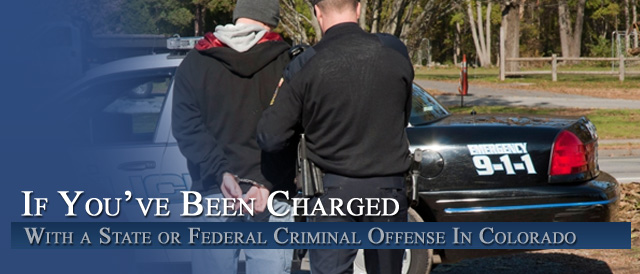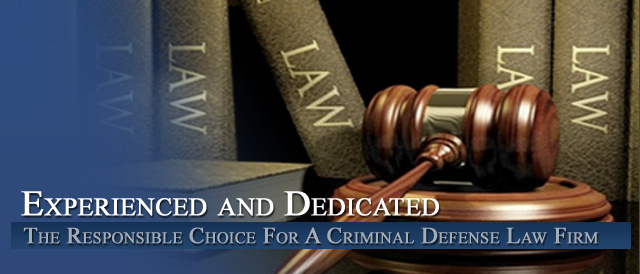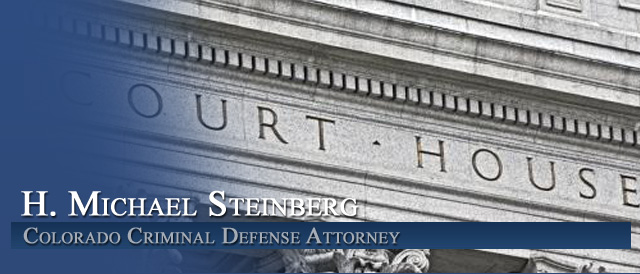




Colorado Criminal Law and Procedure – Understanding False Confessions and the Impact of Psychological or “Forensic’ Interrogations
The phenomenon of false confessions is a fascinating subject in criminal justice circles.
It calls attention to the very nature of police-suspect interrogation techniques and the weaknesses of the individual in the face of the might of Government.
In recent years, police have elicited a substantial number of demonstrably false confessions from adults.
Many of these false confessions have led to erroneous prosecutions, and some have led to wrongful convictions and incarceration.
Some of the wrongfully convicted false confessors have spent many years unjustly incarcerated before being exonerated and released; others remain behind bars.
Throughout American history, police-induced false confessions have been among the leading causes of wrongful conviction. It is easy to understand how beatings, torture, sleep deprivation, and threats of violence may lead an innocent suspect to falsely confess. Yet with psychological interrogation methods, the idea that an innocent person would confess to a crime he did not commit – particularly to a felony that carries the possibility of a lengthy prison sentence or even the death penalty – is highly counterintuitive.
The Myth of Psychological Interrogation
Most lay people believe in the myth of psychological interrogation: that an innocent person will not falsely confess to police unless he is physically tortured or mentally ill. That is that “An innocent person never confesses to something he didn’t do – unless he’s crazy.”
The logical corollary is that suspects who confess must be guilty. This belief has been noted by numerous social scientists and legal scholars. Recently, a survey of 1,000 potential jurors in the District of Columbia found that the majority of respondents discounted the possibility that confessions may be false. Sixty-eight percent indicated that they believed a suspect would confess falsely “not very often” (40 percent) or “almost never” (28 percent). This quantifies the perception of trial attorneys who report that the vast majority of potential jurors insist that it is not possible for someone to confess to a crime he did not commit. This belief is also shared by many criminal justice officials.
The myth of psychological interrogation persists for several reasons. Most people do not know what occurs during interrogations because they have not experienced it firsthand and do not know anyone who has. They are also not familiar with how police are trained to interrogate suspects or with studies that describe actual interrogation practices. Most people are therefore unaware of the highly manipulative, deceptive, and stress-inducing techniques and strategies that interrogators use to elicit confessions. Nor are they aware that these methods have led to numerous false confessions.
Further, most people assume that people do not act against their self-interest or engage in self-destructive behaviors. They assume that an innocent person would not confess to a crime he did not commit. Thus, most people cannot imagine that they themselves would falsely confess, especially to a serious crime.
Identifying and Documenting False Confessions
A false confession is a confession (the “I did it” statement plus the narrative of how and why the crime occurred) that is factually false and given by a person who is entirely innocent of the crime of which he stands accused. False confessions are difficult to discover since neither the federal government nor any state nor any private organization keeps records of them. Despite the inherent difficulties of identifying false confessions, researchers have documented numerous false confessions through case studies and archival/documentary studies. So many interrogation-induced false confessions have been documented in recent years that there is no longer any dispute about their occurrence.
Since the late 1980s, six studies alone have documented approximately 250 interrogation-induced false confessions.
In 1987, Hugo Bedau and Michael Radelet found 49 miscarriages of justice in capital or potentially capital cases that were caused by false confessions.
In 1998, Richard Ofshe and I documented 60 cases of police-induced false confession in the post-Miranda era (i.e., after 1966).
In 2000, Barry Scheck, Peter Neufeld, and Jim Dwyer reported on the first 62 cases in the United States involving wrongful conviction established through DNA exoneration beginning in 1989; by September 2007, the number of DNA exonerations had grown to 207.
False confessions cause (or were related to) 15-20 percent of these wrongful convictions. In 2003, Rob Warden studied the role of false confession in miscarriages of justice in homicide prosecutions in Illinois since 1970, and found that 60 percent (25 out of 42) of those wrongfully convicted had falsely confessed.
Most recently, Sam Gross and his colleagues identified 340 official exonerations of wrongly convicted individuals from 1989 to 2003, 15 percent of which resulted from false confessions.
Taken together, these studies reveal several important things about the problem of false confession in America. First, they provide abundant evidence that police-induced false confessions continue to occur regularly and “are of sufficient magnitude to demand attention,” as the late Welsh White put it. Collectively these studies alone document more than 250 interrogation-induced false confessions – the majority of which have occurred within the last two decades – and corroborate much of what we already know from dozens of case studies.
The problem of false confession is not limited to a small number of cases. These studies reveal that false confessions are therefore not an anomaly but a systemic feature of American criminal justice, despite procedural safeguards such as Miranda rights and a constitutional prohibition against legally coercive interrogation techniques. Moreover, as Samuel Gross and his colleagues have noted, “False confessions have more impact on false convictions than their numbers suggest, since quite often they implicate other innocent people in addition to the confessor.”
Each of these more than 250 cases advertises the existence of many other false confessions that will never be discovered or come to the attention of researchers or policymakers. Unless police officers change their procedures for selecting suspects and their interrogation practices, false confessions will continue to occur regularly.
Second, these studies demonstrate that false confessions continue to be a leading cause of miscarriages of justice in America. In Bedau and Radelet’s 1987 study, false confessions were the third leading cause of wrongful conviction. In Warden’s 2003 study they were the single leading cause.
That false confessions regularly lead to wrongful convictions of the innocent is not surprising because confessions are the most damning and compelling evidence the state can bring against the accused. It should also not be surprising that criminal justice officials and lay jurors regularly fail to discriminate between true and false confessions.
Third, these studies show that police-induced false confessions appear to occur primarily in the more serious cases, especially homicides and other high-profile felonies. More than 80 percent of the 125 false confessions documented by Steve Drizin occurred in homicide cases. Likewise, Samuel Gross and his colleagues found that 80 percent of the false confessions in their sample involved murder.
In fact, false confessions may be the single leading cause of wrongful convictions in homicide cases. More than two-thirds of the DNA-cleared homicide cases documented by the Innocence Project were caused by false confessions. This figure is consistent with Warden’s study, which found that false confessions were the leading cause of wrongful conviction in Illinois homicides since 1970, occurring in approximately 60 percent of these miscarriages. Police-induced false confessions dominated the problem of Illinois exonerations in capital cases. As Samuel Gross has pointed out, “False confessions are three to four times more common as a cause of miscarriages of justice for homicide cases than for other crimes.”
There are several reasons why false confessions are a far more common cause of wrongful convictions in both capital and non-capital homicide prosecutions. Police investigate homicides and other serious felonies differently than less serious cases. Police are under greater institutional pressure to solve serious and high-profile cases and therefore put more time, effort, and pressure into interrogating suspects. They conduct longer and more intense interrogations and try to elicit confessions.
Investigators are thus more likely to use psychologically coercive techniques or simply wear down a suspect. In homicides, the fact that the victim is dead and police frequently lack any eyewitnesses makes getting a confession even more important. Many homicides would go unsolved without a confession. Just as robbery cases are typically resolved by eyewitness evidence, homicides are typically resolved by confessions.
Despite the number of documented false confessions in recent decades, we do not know the frequency at which they occur or the rate at which they lead to the wrongful conviction of the innocent. No well-founded estimate has ever been published. Nor it is presently possible for social scientists to provide one because neither the federal government nor any state nor any private organization keeps records or collect statistics on the number or frequency of interrogations in America. As a result, there is simply no way to know how often police interrogate suspects or how frequently they confess, whether truthfully or falsely. Because it is not possible to reach valid or reliable estimates of the incidence of false confessions, it is also not possible to estimate how often false confessions lead to wrongful convictions.
Nevertheless, there is good reason to believe that the documented cases of interrogation-induced false confession understate the extent of the phenomenon. False confessions are rarely publicized. They are likely to go unreported by the media, unacknowledged by police and prosecutors, and unnoticed by researchers. As many have pointed out, the documented cases of interrogation-induced false confession are therefore likely to represent only the tip of a much larger problem. Indeed, recent studies suggest that interrogation-induced false confessions may be a bigger problem for the American criminal justice system than ever before. Researchers have documented far more false confessions in recent years than in any previous time period. If there is no worse error than the wrongful conviction and incarceration of the innocent, then police-induced false confessions – especially in capital cases – are one of the most serious problems in the criminal justice system today.
The Consequences Of False Confession
Confessions are the most incriminating and persuasive evidence of guilt that the state can bring against a defendant. False confessions are therefore the most incriminating and persuasive false evidence of guilt that the state can bring against an innocent defendant. Former U.S. Supreme Court Justice William Brennan’s observation that “no other class of evidence is so profoundly prejudicial” is amply supported by social science research. Confessions strongly bias the perceptions and decision-making of criminal justice officials and jurors alike because, as we have seen, most people assume that a confession – especially a detailed one – is, by its very nature, true. Confession evidence therefore tends to define the case against a defendant, usually overriding any contradictory information or evidence of innocence. If introduced against defendants at trial, false confessions are highly likely to lead to wrongful convictions – even when they are elicited by questionable interrogation methods and are not supported by other evidence. As Richard “With near certainty, false confessions lead to unjust deprivations of liberty. Often they also result in wrongful conviction and incarceration, sometimes even execution.”
A confession sets in motion a seemingly irrefutable presumption of guilt among justice officials, the media, the public, and jurors. This chain of events, in effect, leads each part of the system to be stacked against the confessor; he will be treated more harshly at every stage of the investigative and trial process. He is significantly more likely to be incarcerated prior to trial, charged, pressured to plead guilty, and convicted. Moreover, the presence of a confession creates its own set of confirmatory and cross-contaminating biases, leading both officials and jurors to interpret all other case information in the worst possible light for the defendant. For example, a weak and ambiguous eyewitness identification that might have been quickly dismissed in the absence of a confession will instead be treated as corroboration of the confession’s validity. As the case against a false confessor moves from one stage to the next in the criminal justice system, it gathers more force and the error becomes increasingly difficult to reverse.
It all starts with the police. Once they obtain a confession, they typically close their investigation, deem the case solved, and make no effort to pursue any exculpatory evidence or other possible leads – even if the confession is internally inconsistent, contradicted by external evidence, or the result of coercive interrogation. Once they elicit a confession, it serves to confirm their presumption of guilt. Even if other evidence emerges suggesting or even demonstrating that the confession is false, the police almost always continue to believe in the suspect’s guilt and the accuracy of the confession.
Another reason police officers typically close their investigation after obtaining a confession is their poor training about the risks of psychological interrogation and police-induced false confessions. From their inception in the early 1940s, interrogation training manuals and programs have virtually neglected the subject of police-induced false confessions, despite considerable published research documenting their existence and effects. The widely cited Inbau and Reid manual, for example, did not discuss the problem of false confessions until its fourth edition in 2001. And despite adding a chapter on the subject, the Inbau and Reid manual – like every other American interrogation manual and training program – continues to insist that the methods it advocates are not “apt to lead an innocent person to confess,” an erroneous assertion that is contradicted by a sizeable body of empirical research. As a result, American police officers remain poorly trained about the psychology of false confessions, why their methods can cause the innocent to confess, the types of cases in which false confessions are most likely to occur, and how to recognize and prevent them.
The presumption of guilt and the tendency to treat more harshly those who confess extend to prosecutors. Like police, prosecutors rarely consider the possibility that an innocent suspect has falsely confessed. Some are so skeptical of the idea of police-induced false confessions that they stubbornly refuse to admit that one occurred even after DNA evidence has unequivocally established the defendant’s innocence. As one prosecutor, Christie Stanley (the current district attorney in Santa Barbara County, Calif.), has stated: “Reason and common sense dictate that innocent people do not confess to crimes they did not commit.” Once a suspect has confessed, prosecutors tend to charge him with the highest number and types of offenses, set his bail higher (especially in serious or high-profile cases), and are far less likely to initiate or accept a plea bargain to a reduced charge.
The confession becomes the centerpiece of the prosecution’s case. Even defense attorneys tend to presume confessors are guilty and treat them more harshly. They often pressure confessors to accept a guilty plea to a lesser charge in order to avoid the higher sentence that will inevitably follow from a jury conviction. As the California Supreme Court has noted, “The confession operates as a kind of evidentiary bombshell which shatters the defense.” American judges also tend to presume that confessors are guilty and treat them more punitively. Conditioned to disbelieve defendants’ claims of innocence or police misconduct, judges rarely suppress confessions, even highly questionable ones.
If the defendant’s case goes to trial, the jury will treat the confession as more probative of his guilt than any other type of evidence (short of a videotape of him committing the crime), especially if, as in virtually all high-profile cases, the confession receives pretrial publicity. False confessions are thus highly likely to lead to wrongful convictions.
A false confessor whose case goes to trial stands a 73-81 percent chance of being convicted, even though there is no reliable evidence corroborating his confession. Taken together, these studies demonstrate that a false confession is a dangerous piece of evidence to put before a judge or jury because it profoundly biases their evaluations of the case in favor of conviction – so much that they will allow it to outweigh even strong evidence of a suspect’s innocence. Jurors simply do not appropriately discount false confession evidence, even when the defendant’s confession was elicited by coercive methods and the other evidence in the case strongly supports his innocence. False confession evidence is thus highly, if not inherently, prejudicial to the fate of any innocent defendant in the American criminal justice system. As the late Welsh White noted, “The system does not have safeguards that will prevent the jury from giving disproportionate weight to such confessions.”
The findings from these studies of aggregated false confessions cases are consistent with those from experiments and public opinion surveys. They all point to the same conclusion: a confession is “uniquely potent” in its ability to bias the trier of fact in favor of the prosecution and lead to a wrongful conviction. Experimenters have demonstrated that mock jurors also find confession evidence more incriminating than any other type of evidence, and they have found that confessions greatly increased the conviction rate even when mock jurors viewed them as coerced, were instructed to disregard them as inadmissible, and reported afterward that they had no influence on their verdicts.
Most Americans simply accept confession evidence at face value. When false confessors subsequently retract their confessions, they are often not believed, or their retractions are perceived as further evidence of their deceptiveness and thus guilt.
If a false confessor is convicted, he will almost certainly be sentenced more harshly, and the likelihood of discovering his innocence will drop precipitously. At sentencing, trial judges are conditioned to punish defendants for claiming innocence (since it costs the state the expense of a jury trial) and for failing to express remorse or apologize. And once a defendant is convicted and imprisoned, it is exceedingly rare that criminal justice officials will take seriously his claim that he confessed falsely and was wrongfully convicted. The criminal justice system is poor at discovering, admitting, or remedying its errors, especially after an innocent suspect has been convicted. Indeed, the system officially presumes his guilt after he is convicted, treats the jury’s verdict with deference, and interprets any new evidence in the light most favorable to the prosecution.
Until recently, with the advent of DNA testing, virtually no one in the criminal justice system took seriously any innocent prisoner’s claim that he was wrongly convicted, especially if the conviction was based on a confession to police. And most people still tend to presume the validity of convictions, despite the lessons of DNA in the last two decades. One reason is that the system does not provide any regular mechanisms for reviewing the substantive basis of convictions. It is usually just the prisoner’s officially discredited word against that of an entire system. Absent a remarkable stroke of luck or social intervention, the wrongfully convicted false confessor will never be able to officially prove his innocence. Thus, police-induced false confessions are among the most fateful of all official errors.
Conclusion
Every wrongful prosecution and conviction based on a police-induced false confession represents a systemic failure. This is not a problem of “bad apples.” False confessions do not occur because individual police intentionally seek to incriminate or frame the innocent. Nor do wrongful convictions occur because individual prosecutors, judges, or jurors set out to convict and incarcerate the innocent. The series of perceptions and decisions that ultimately lead to miscarriages of justice is typically based on ignorance, bias, and negligence, not malice. They occur for a combination of reasons: poor training, shoddy police work, violation of established rules, tunnel vision and confirmation bias, and suppression of exculpatory evidence, to name a few.
False confessions lead to miscarriages of justice when the procedural safeguards and multiple points of official discretion built into the system fail. As Samuel Gross and his colleagues have pointed out: “One way to think of false convictions is as a species of accidents. Like many accidents, they are caused by a mix of carelessness, misconduct, and bad luck.” Like accidents, wrongful convictions based on false confessions can be minimized or even prevented – if we care to face up to the systemic sources of carelessness, misconduct, and bad luck.
Minimizing or preventing police-induced false confessions and the miscarriages of justice they spawn will require more than merely changing the rules of criminal procedure. It will require greater scrutiny of the police interrogation process by outsiders, for police often fail to acknowledge the problem, to understand (let alone reform) it, or even to admit to their role in causing it. It will thus require greater transparency about what occurs during the interrogation process. It will also require that criminal justice officials, jurors, and the public become more skeptical about the probative value of confessions in the absence of independent corroborating evidence.
(Only slightly modified from an excellent article called False Confessions By Richard A. Leo)
Other Articles of Interest:
- Understanding False Confessions and the Impacy of Psychological or Forensic Interrogations
- Fraud Crimes
- 007. COLORADO CRIMINAL CODE — OFFENSES AGAINST PERSONS – FALSE IMPRISONMENT
- Colorado Criminal Law – Understanding the Crime of False Information to a Pawnbroker – How Pawnbrokers Work in Colorado 12-56-104 (5) CRS
- Pre-Sentence Investigations












